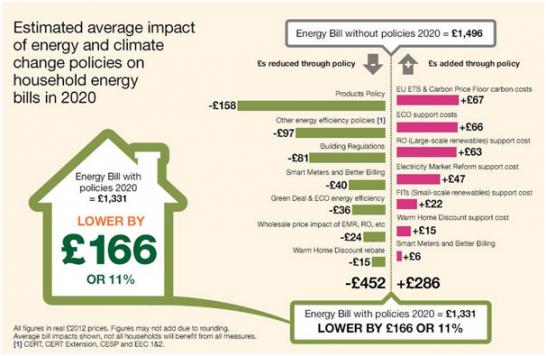Look what’s happening to the privatised energy sector –
- poorly-regulated Big Six energy companies in positions of near-monoploy raking in whacking profits
- a revolving door between government, the civil service and big fossil fuel companies that makes a mockery of democracy
- huge public subsidies that serve as risk capital for companies that won’t otherwise invest – for example in the new Hinkley Point nuclear power station
- high household energy bills
- loads of people dying because they can’t afford to heat their homes
And now that the shit’s hitting the fan, Cameron wants to avoid having to properly regulate the private energy companies, which are far too close to his government.
Rather than tackle the source of the problem – Thatcher’s privatisation of the energy sector – Cameron hopes the electorate will fall for his ruse of removing the costs from people’s energy bills that support investment in green energy generation, pay for energy conservation home retrofits and help fuel poor households.
Two points:
- What’s playing out in the privatised energy sector now will play out in the privatised health sector soon, unless we stop the Health and Social Care Act 2012 – not to mention the Care Bill that’s currently going through Parliament. Unless it’s stopped, a sneaky amendment introduced at the last minute in the House of Lords report stage of the bill last Monday will make it possible for Special Administrators to close any hospitals or hospital departments without public consultation. All in the name of the need to “reconfigure” the NHS.
- Cameron’s proposal to remove the costs of green energy subsidies, energy conservation retrofits and help for people in fuel poverty could reduce people’s energy bills in the short term, but by 2020 it will make the average household energy bill about £166 more expensive than it would otherwise be. This is because Cameron’s proposal would lock the UK into fossil fuel and nuclear energy, which are only going to get more and more expensive – and also worsen climate change. This is not to say that this set of policies is particularly great, in terms of social fairness and effective carbon emissions reduction. But if it’s going to be knocked out, something else needs to replace it, that works better.

